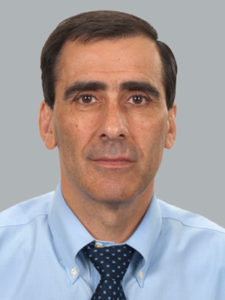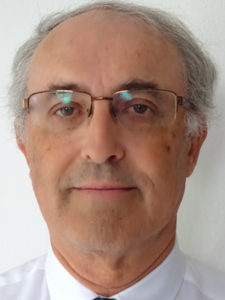
With immunologic research providing important insights into the mechanisms of autoimmunity and the resulting inflammatory responses that drive a variety of rheumatic conditions, a series of three Immunology Update sessions this week will provide rheumatologists with the latest science and how that translates into potential therapeutic targets.
The first session, Immunology Update – Next Generation of B Cell and Plasma Cell Therapies, will take place from 1:00 – 2:00 pm Sunday in Room S100bc. In this session, Ignacio Sanz, MD, Professor of Medicine and Director of the Division of Rheumatology at Emory University School of Medicine in Atlanta, will discuss new knowledge in B cell differentiation pathways and plasma cell generation, differentiation, and maintenance, including plasma cells in long-lived survival niches.
Dr. Sanz will also discuss how this knowledge can be used to understand the limitations of current therapies and to inform the development of new strategies targeting the B cell and plasma cell compartments, including new agents for the treatment of myeloma that may have relevance for autoimmunity—small molecule inhibitors, such as Btk targeting and cell-based therapies including CART cells.
“We are learning more and more about how different patients may be different in terms of what type of B cells and plasma cells contribute to their disease in particular, as well as patients whose disease may not be triggered or induced by B cell or plasma cell malfunction,” Dr. Sanz said. “As we are able to recognize more populations of B cells and plasma cells that contribute to disease, we can use our molecular understanding of those B cell and plasma cell populations to develop better therapies to target them.”

The second session, Immunology Update – Mechanisms & Effects of Selective JAK Inhibitors, will be held from 7:30 – 8:30 am Monday in Room W375c. During this session, John J. O’Shea, MD, will discuss the functions of JAKs in cytokine signaling, outline the selective actions of specific JAK/STAT pathways for key immune cytokines, describe the predicted benefits and side effects of selectively inhibiting specific JAK pathways, and discuss new ways to target JAKs, including topical and non-absorbable JAK inhibitors and targeting the pseudokinase domain.
Dr. O’Shea is Scientific Director and Chief of the Molecular Immunology and Inflammation Branch at the National Institute of Arthritis and Musculoskeletal and Skin Diseases at the National Institutes of Health in Bethesda, MD.
This week’s final related session, Immunology Update – IL-17: From Discovery to Target, will be held Tuesday, from 9:00 – 10:00 am, in Room S100bc. During this session, Pierre Miossec, MD, PhD, Professor of Clinical Immunology at the Claude Bernard University in Lyon, France, will review the biology of IL-17 and the targeting of this cytokine in diseases such as psoriasis, psoriatic arthritis, and spondyloarthritis.

Dr. Miossec was the first to identify the pro-inflammatory and destructive properties of IL-17. He further showed that combining IL-17 and TNF inhibition was more potent—the basis for numerous therapies targeting IL-17 and which led to approval of the first anti-IL-17 antibody in 2015.
“Recent and ongoing research results continue to contribute to our understanding of the systemic effects of IL-17, such as its procoagulant effect on endothelial cells, the amplification of liver response, and muscle dysfunction in chronic inflammation,” Dr. Miossec said. “Research in this area is being translated into the development of inhibitors of IL-17. Today, three monoclonal antibodies targeting IL-17 and its receptor are on the market for skin and arthritis conditions. Other options are in development to target other members of the IL-17 family and molecules involved in Th17 development.”
